The task of the jury of the Santos Stockler Literary Prize, instituted by the Câmara de Lagoa, was not an easy task. For the 2017 edition, whose prizes were handed out on Saturday, 122 short stories were presented to the competition, by authors from all over the country and even some from Brazil.
The main prize, worth €10, was awarded to the short story “Alfaiate”, by Helena Tapadinhas, who happened to be born in Lagos.
António Branco, former rector of the University of Algarve and president of the jury, even recalled the «difficult task of choosing the winners», but also highlighted the «excellent atmosphere among the members of the jury». “With more than 100 copies in the competition, the possibility of getting angry was great. I've been to a jury, very close by, where the jurors ended up angry…».
But, in Lagoa, things went well. The jury – which also included the regional director of Culture Alexandra Gonçalves, the teacher Maria do Sameiro, the librarian from Lagoa Clara Andrade and the writer and lawyer from Lagos, João Nuno Aurélio Marcos – considered that, in addition to this Award, they should still be six Honorable Mentions were awarded to the short stories “Camaleão”, by Ana Maria Nunes Gonçalves (from Mafra), “A casa de Verão”, by Isabel Rio Novo (from Vila Nova de Gaia), “A lifetime in a clay dish”, by Carla Marisa P. Vieira Pais (from Paris), “Nepomuceno in the land of the possible”, by David Eduardo V. Roque (from Ferragudo), “Flaid memories”, by Paulo M. Morais (from Vila Nova de Gaia) and « On permanence”, by António Conduto Oliveira (from Leiria). The theme of the 2017 edition was “Heritage: Looking at the Past towards the Future”.
As António Branco said, explaining the choice, the jury was “obliged to guide its analysis of the more than one hundred copies received around these two requirements: the intrinsic literary quality of the tale, seen in the light of a Literary History full of extraordinary examples; and the way in which this quality also served to undoubtedly make known a superior heritage dimension of the municipality of Lagoa».
«After removing the many copies in the competition that did not meet any of those conditions, the jury devoted itself more closely to those twenty stories that either had a worthy linguistic and literary quality or that also dignifiedly illuminated a relevant aspect of the material or immaterial heritage. of the county. As a result of this finer analysis, it was easy to unanimously reach the conclusion that one of the copies fulfilled, better than all the others, the two premises of the prize. As already announced in this session, this tale is called «Alfaiate» and (we learned about it after the deliberation period) was written by Helena Tapadinhas».
The president of the jury also made a point of underlining “the rule of anonymity”, omnipresent in the work of the judges. "Without her, our work would be impossible", he stressed. “Until the moment when the winners are chosen, we open the envelope with the identity, we are free”, said António Branco.
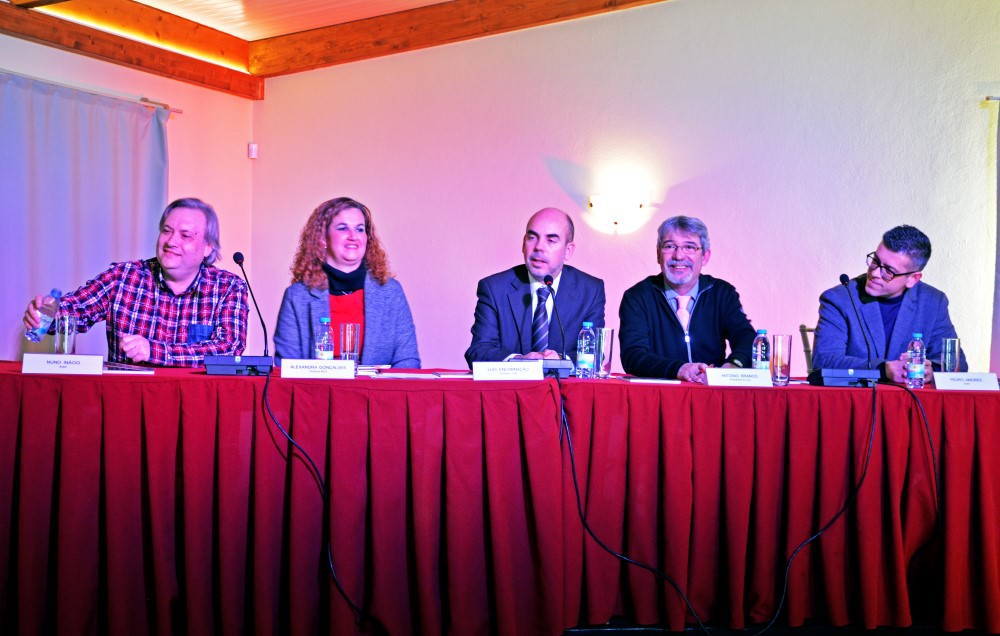
About the winning tale, António Branco said that «Alfaiate is talking about the profound transformations that took place in the fishing and agricultural communities of Lagoa in the last century, triggered by the development of intense tourist activity that, in turn, provided huge deals around the sale of land along the coast. And if, on the one hand, it is true that this phenomenon was decisive so that part of this population could finally escape poverty, on the other, it resulted in a profound disintegration and acculturation of these same communities, including the loss, perhaps forever, of important references cultural and anthropological. And it is about this loss that this story essentially speaks to us».
«In doing so, in an intelligent writing, literarily careful, linguistically rich and full of very fine humour, the short story recovers a precious immaterial heritage, thus fully fulfilling the program proposed by the protagonist and narrator. But it does it, too – and the aspect I will refer to below is anything but negligible – without any concession to the reduction of the story told to the local referential, which, on the contrary, appears as blood that gives life to a remarkable narrative organicity». added.
Helena Tapadinhas, at the end of the awards session, which took place at Quinta dos Vales, between fados and tastings of the wine produced there, said that she was “very happy that they liked my Tailor”. The author, who is also a teacher, a woman of the theater and linked to environmental education through art, revealed that she likes “very much to write. I cannot do without writing». As a matter of fact, this short story “Alfaiate” was not written on purpose for the Literary Prize, rather it was “one of the many that I have written”.
Helena Tapadinhas underlined “the requirement of the jury's evaluation, from a literary point of view, which pleased me a lot”. «It is very good that this literary prize exists in Lagoa and that it is met with very demanding criteria».
Of those awarded with Honorable Mention, even because the prize was “only” the publication of their short story in a book, only David Roque, also a professor and resident in Ferragudo, was present at the session. His short story “Nepomuceno in the land of the possible”, he explained, at the awards ceremony, crosses reality and fantastic.
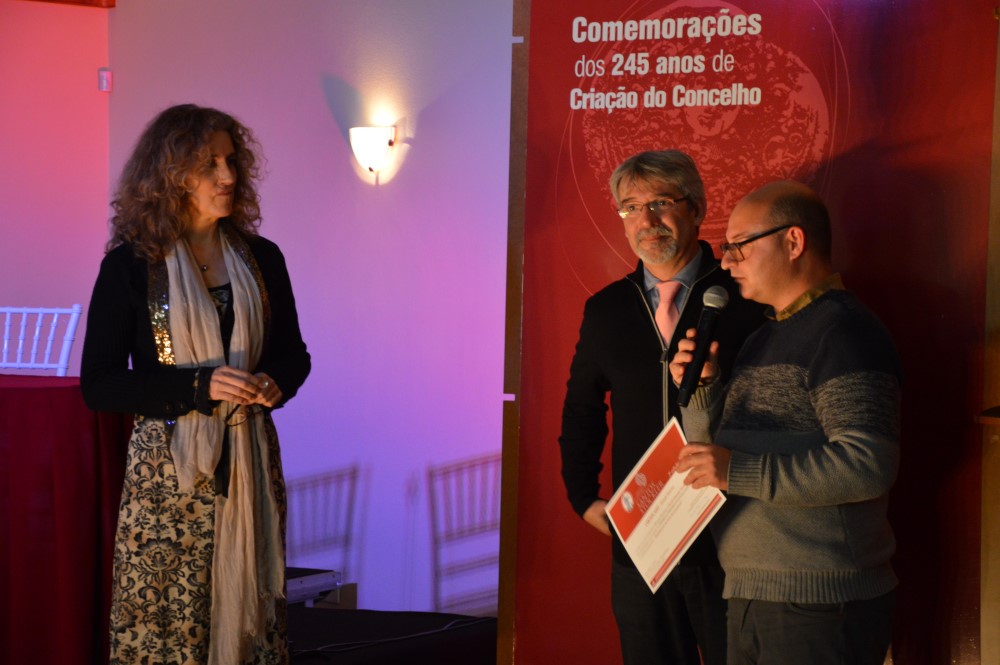
The books – one with the short story “Alfaiate”, winner of the Award, the other with the other ones awarded with Honorable Mentions – will be released in the second half of this year, according to the Sul Informação.
After all the praise given by the president of the jury to all the winners (see full text below), with an emphasis on the winning story, the dozens of people who filled the event room at Quinta dos Vales were…mouthwatering.
Furthermore, only in this same session, the book was launched with the two works that won the Honorable Mention in the previous edition (2016) of the Santos Stockler Literary Prize, which had the essay and a theme related to wine as its genre. The work brings together the essays «O Vinho – contributions to the knowledge of this reality in the municipality of Lagoa», by Nuno Campos Inácio, and «Embriaguez, sensatez and other virtues», by Pedro Caetano Amores.
Now, no one wants to wait that long to be able to have the pleasure of reading «Alfaiate», by Helena Tapadinhas, and the rest of the stories.
Meanwhile, councilor Luís Encarnação, from Lagoa City Council, announced the theme and genre for the 2018/2019 edition of the Santos Stockler Literary Prize.
The theme will be «Lagoa, Educating City». As for the genre, this time it will be the most breath-taking in literature, the novel. And with the condition that the narrative, in some way, has to do with both the theme and the municipality of Lagoa itself. As Helena Tapadinhas proved in the 2017 edition, with her short story “Alfaiate”, these conditions are not an impediment to writing a timeless work, of great quality, which carries in itself, as António Branco said, “the universality required of artistic objects ».
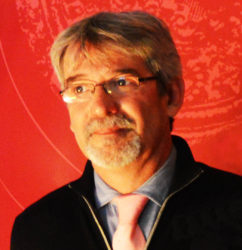 «Santos Stockler Literary Award, 2017
«Santos Stockler Literary Award, 2017
Intervention on behalf of the jury
Antonio Branco
January 27, 2018, Quinta dos Vales, Estômbar
As is public knowledge, this year's edition was dedicated to the short story, a literary genre whose origin many specialists locate in the Middle Ages, a period in which it became literary consecrated, for example, in the genius of the Decameron, of Boccacio, or of the Canterbury Tales, by Chaucer. But it was mainly from the century. XIX that the genre flourished as it is still practiced today by major writers, highlighting, in Portuguese, among many others, the brilliant Camilo Castelo Branco, Eça de Queirós or Machado de Assis and, more recently, Miguel Torga, David Mourão -Ferreira, Lídia Jorge, Sophia de Mello Breyner, Mia Couto. In other languages, we could recall the unequaled mastery of a Balzac, a Chekhov, a Poe, a Joyce, a Hesse, a Borges, finally, of a myriad of great Literature creators who, at some point in their life, decided to devote themselves to writing short stories.
All of them and all scholars agree on one point: despite its brief form – or perhaps because of that – the short story is one of the most difficult literary genres, as it requires concentration and an intensity of action capable of, in a few words, generate a depth of meaning equal to the most sublime poems or novels. In fact, the short extension, which usually constitutes one of the most identifying formal marks of the genre, is, in fact, a trap for the most incautious who believe in it to find an alibi for some superficiality or a justification for the minimization of care in the design of the characters, the plot, in short, the human drama with which our time is occupied.
In cases where this happens, however, it makes me want to adapt Rainer Maria Rilke's advice in the letter he wrote to a young poet, now addressed to these more unprepared authors: «There is but one way. Try to get inside yourself. Investigate the reason that sends you to write; examine whether it extends its roots to the deepest corners of your soul; confess to yourself: would you die if you were forbidden to write?' And feel like adding: "If the answer to this question is undoubtedly not affirmative, don't write."
The second difficulty in the requirements of this edition of the Santos Stockler Prize was linked to the need to articulate the writing of the short story with a theme: «Heritage: Looking at the Past Towards the Future». In fact, the demand for stories that reveal that need for expression of the depths of the human soul that Rilke referred to, was associated with the obligation to be anchored in another: that of also expressing a tribute to the council's very significant material or immaterial heritage. of Lagoon. In this case, the traps were different: the desire to obey the theme made us forget the need for depth and literary quality, on the one hand; and, on the other hand, using the theme of the competition as a merely allusive setting for a drama or a story that, in reality, could take place elsewhere or in relation to any other heritage.
The jury was thus obliged to guide its analysis of the more than one hundred copies received around these two requirements: the intrinsic literary quality of the short story, seen in the light of a Literary History full of extraordinary examples; and the way in which this quality also served to undoubtedly make known a superior heritage dimension of the municipality of Lagoa.
After removing the many copies in the competition that did not meet any of these conditions, the jury focused more closely on those twenty stories that either possessed a worthy linguistic and literary quality or that also dignifiedly illuminated a relevant aspect of the material or immaterial heritage of the county. As a result of this finer analysis, it was easy to unanimously reach the conclusion that one of the copies fulfilled, better than all the others, the two premises of the prize. As already announced in this session, this story is called «Alfaiate» and (we learned about it after the deliberation period) was written by Helena Tapadinhas.
Tailor, which gives the title to the story, is the name of the stray dog whose biography, narrated in the first person, follows the profound social, economic and cultural changes that the protagonist witnesses in the human community in which he lives, nicknamed by him as «People from beach". This narrative program is presented to us right at the beginning, when the protagonist, at the end of his life, announces to us his will to, I quote, "bequeath to the future the memory of the changes he [witnessed]", and which corresponded, I return to quote, "to the death of a very ancient world."
In fact, Alfaiate is talking about the profound transformations that took place in the last century in the fishing and agricultural communities of Lagoa, triggered by the development of intense tourist activity which, in turn, provided huge deals around the sale of land along the coast. And if, on the one hand, it is true that this phenomenon was decisive so that part of this population could finally escape poverty, on the other, it resulted in a profound disintegration and acculturation of these same communities, including the loss, perhaps forever, of important references cultural and anthropological. And it is about this loss that this tale speaks to us, essentially.
In doing so, in an intelligent writing, literarily careful, linguistically rich and full of very fine humour, the short story recovers a precious immaterial heritage, thus fully fulfilling the program proposed by the protagonist and narrator. But it does it, too – and the aspect I will refer to below is anything but negligible – without any concession to the reduction of the story told to local referentiality, which, on the contrary, appears as blood that gives life to a remarkable narrative organicity. And this was the reason why, as I am not an inhabitant of the municipality, I did not need to know that both the protagonist and many of the other characters and places or spaces referred to in the narrative existed to understand the depth of the message of this beautiful tale with which Helena Tapadinhas it celebrated the people and the municipality of Lagoa, giving them the universality required of artistic objects.
Finally, I highlight another quality of this text: it snatches the reader, provoking in those who are willing to do so a beneficial dive that encompasses all emotional nuances, at the same time that, thanks to the moments of detachment caused by the humor and irony used by the protagonist, the it makes you seriously reflect on the political meaning of the various events reported and the change to which you witness: because if there is one thing that this story refuses to be, it is ideologically neutral. And this Tailor knows very well when, in announcing his narrative program, with a subtle irony he confesses to us: «I would like to better understand the meaning of these changes in order to tell them better. But when things happen they don't make any sense. Later on, there may be those who entertain themselves by inventing their meaning. But this is just an ability of those who want to pretend that they are not lost in the chaos that rules us.”
However, the supreme irony of the tale lies in the following fictional device for all to see: after all, it is a dog, born to a whore mother at the seaside and «raised for crumbed sardines», who gives it back to us, through the mirror of its art of telling, that image so sharp and sharp (and painful and laughable) of what we humans are doing with our lives together.
For all this – and for many other qualities that the circumstance does not allow me to conveniently highlight – the jury had no doubts in unanimously awarding the 2017 Santos Stockler Literary Prize to Helena Tapadinhas for her short story “Alfaiate”.
Having made the decision regarding the Prize, it was clear that each of the members of the jury had kept in his heart a few more stories that, not fulfilling the same level as I have just presented, the perfect articulation between the criterion of linguistic and literary quality and the criterion of the theme, we considered worthy of reading by those who like well told stories. And so, using a prerogative that the regulation attributed to us, we decided to name the six honorable mentions that I will present below, understandably more briefly and in alphabetical order of the authors' first names.
«Chameleon», by Ana Maria Nunes Gonçalves, celebrates an animal species native to the Alarve that runs the risk of extinction. It also has the characteristic of including beautiful illustrations alluding to the journey undertaken by the protagonist, which, after all, is a journey of self-discovery and self-acceptance. The author offers two versions of the story: one aimed at adults and the other at children and young people.
«Da Permanence», by António Oliveira, is a beautiful, very short and accurate story that alternates between a narrative of the past and another of the present, both coming together, in the end, to a moment in which the protagonist of the present, named after him João glimpses what appears to be a small lighted window in the Convent of Nossa Senhora do Carmo, in Lagoa. The reader cannot help but wonder: is the monk Joham, the protagonist of the past, in his cell, finally writing? And did Joham have witnessed the drama of the near-drowning of John's son? Everything is possible, because, after all, everything remains.
"A lifetime in a clay dish", by Carla Marida Pais, tells the poignant story of Jaime, an unemployed journalist, alcoholic and tormented by the loss of his great love, the death of his father and the pre-dementia state of his mother, hospitalized in a Home in Lagoa, which he visits monthly from Lisbon. On one of those monthly returns to his homeland, Jaime finally discovers, in his father's pottery workshop, now abandoned, the answer to the question that his father had left him and that had accompanied him since childhood: «do you know where love is born, James?”
"Nepomuceno in the Land of Possible", by David Roque, tells in a picaresque way the story of the black slave João Nepumoceno, born in Ferragudo a few months before the 1755 Earthquake, an intelligent boy whose insatiable curiosity leads him to ask the master Baltazar to teach him their magical arts – and reading and writing. We follow the adventures and misadventures of this cultivated slave until the moment when, already a free man, he dares to ask a white girl to marry him.
"A Casa de Verão", by Isabel Novo, whose main action takes place at the end of the XNUMXth century, tells, in a classically beautiful way, the last days of the life of Miss Riverey, a wealthy young English widow who found in Lagoa the curative refuge for the melancholy that had been diagnosed by the doctors in Porto and which, in the end, turned out to be a serious heart disease. The most haunting moment in this tale comes when, giving in to a last call of life that begins to slip away from her, Miss Riverey decides to give herself up to a young fisherman with whom she had established an unlikely relationship at the height of summer. This episode is a powerful metaphor for the fusion of the foreigner with the native, the alien with the indigenous, literarily placing at the center of the narrative the well-known phenomenon of the foreigner's surrender to the muscular and wild and sweet and Mediterranean beauty of the Algarve.
Finally, « Fleeting Memories », by Paulo Morais, narrates, with a poetic sense and great sensitivity, the introspective return of a man to Lagoa to perform his father's funeral, this trip being an opportunity to confront the painful demand for love apparently non-existent fatherly. But, alone in that now empty paternal house, the protagonist perhaps finds that love he thought was absent and, above all, he ends up noticing that he himself is also absent from the life of his daughter, with whom he has not spoken for about ten years».
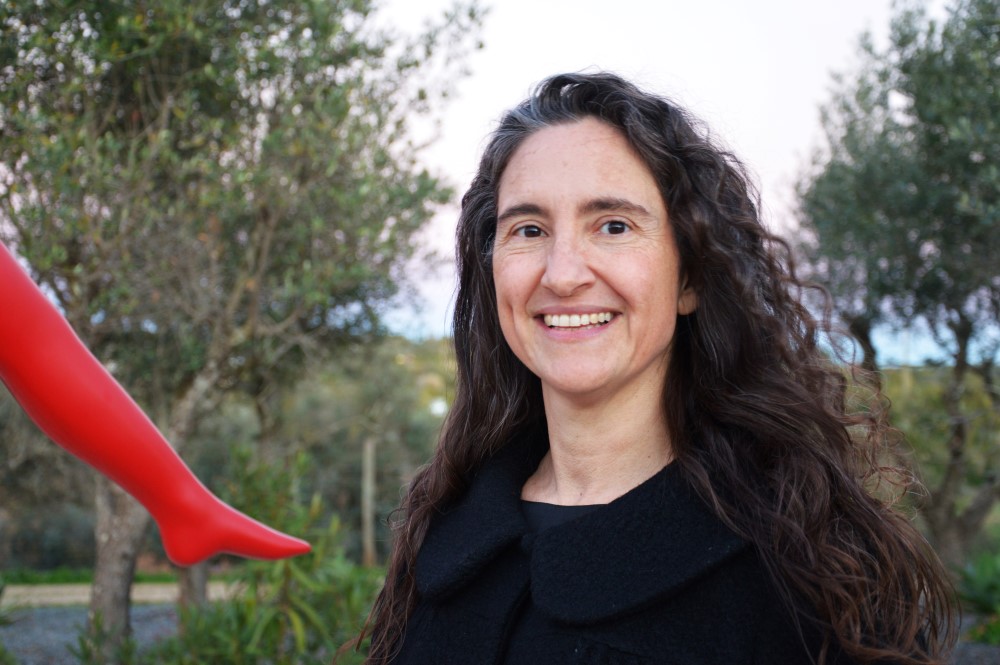
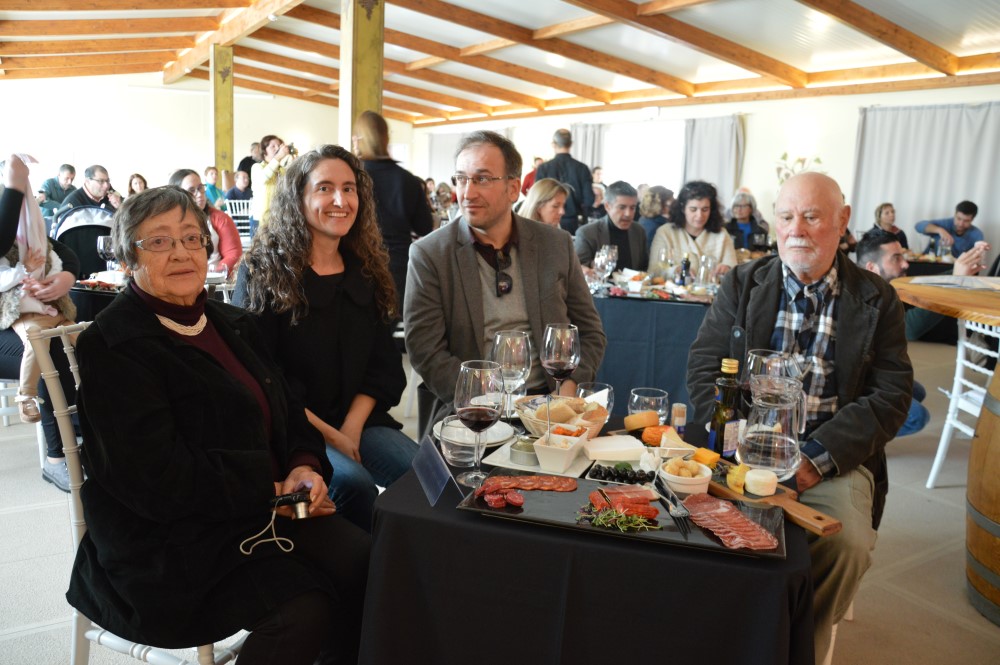
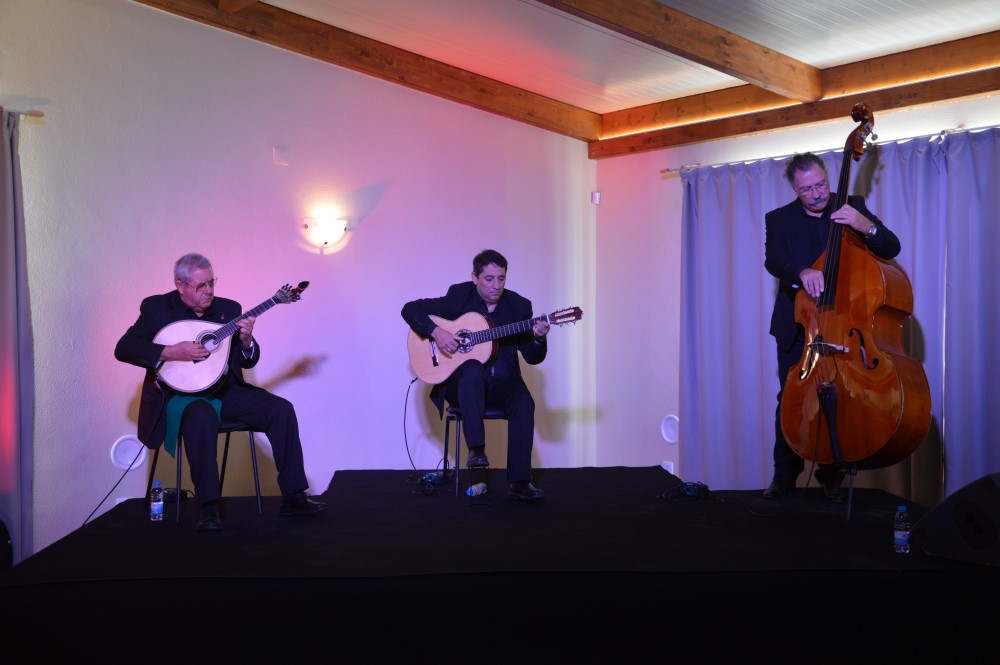
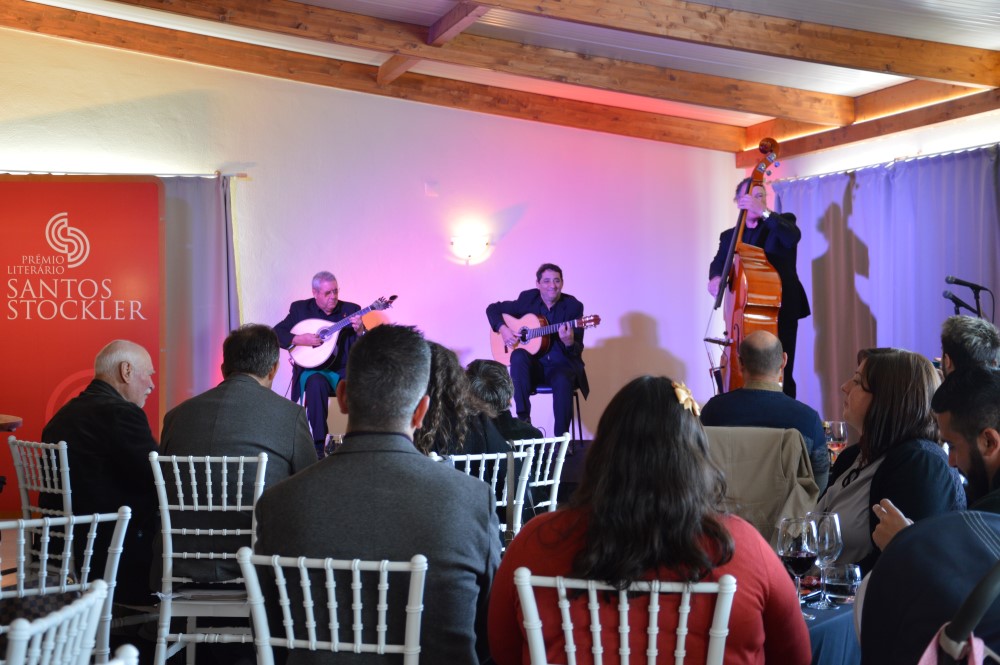
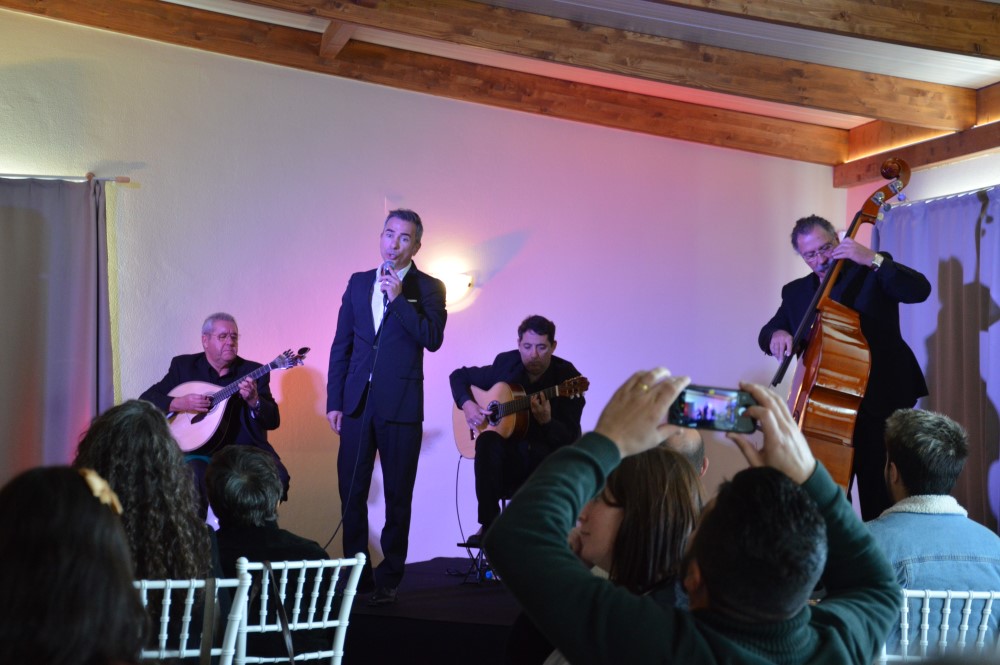
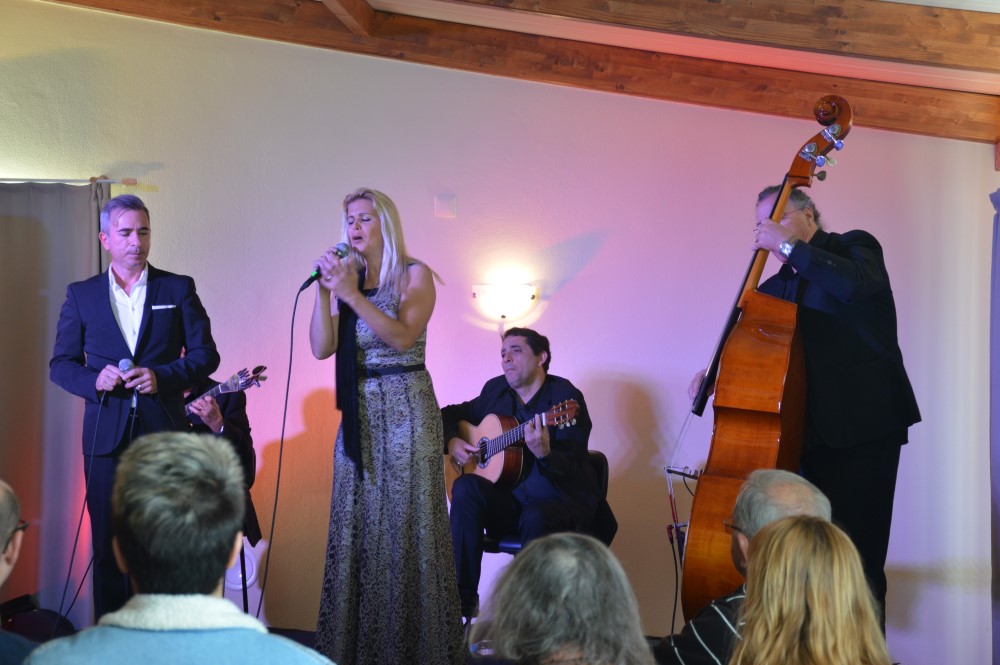
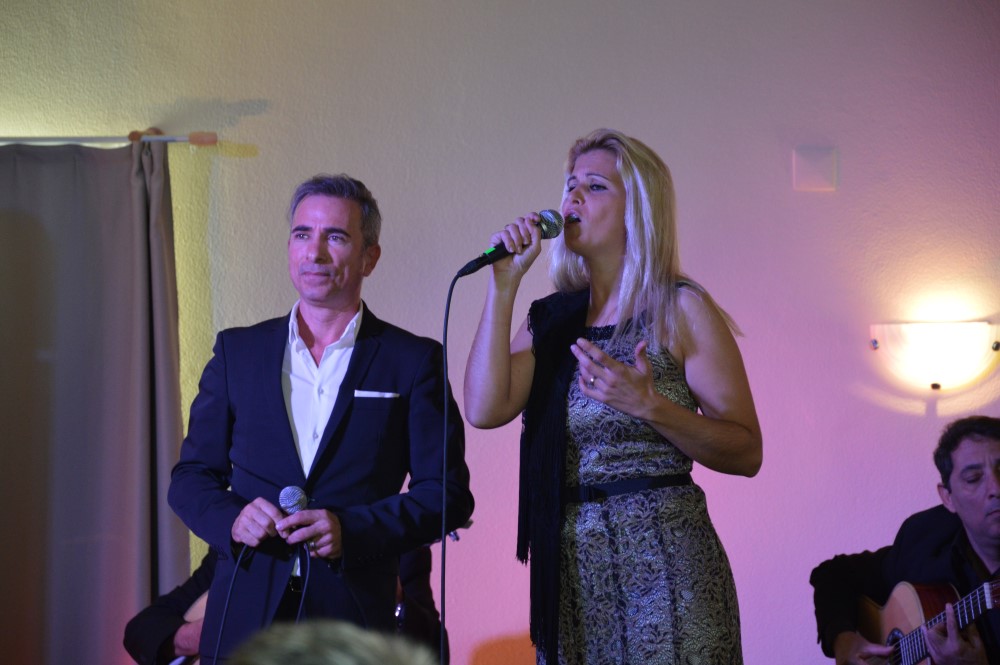
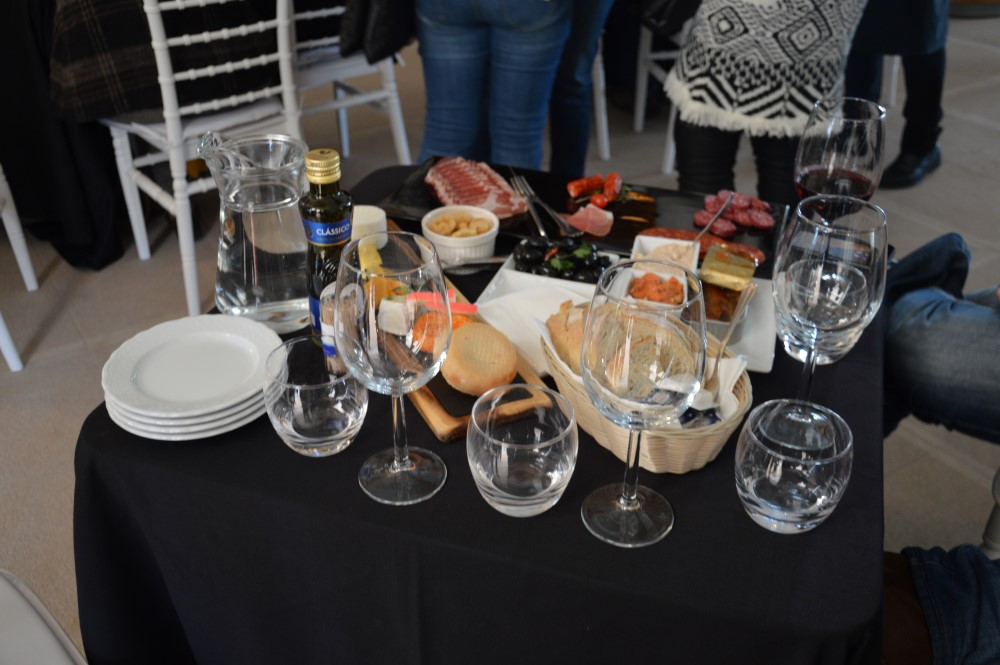
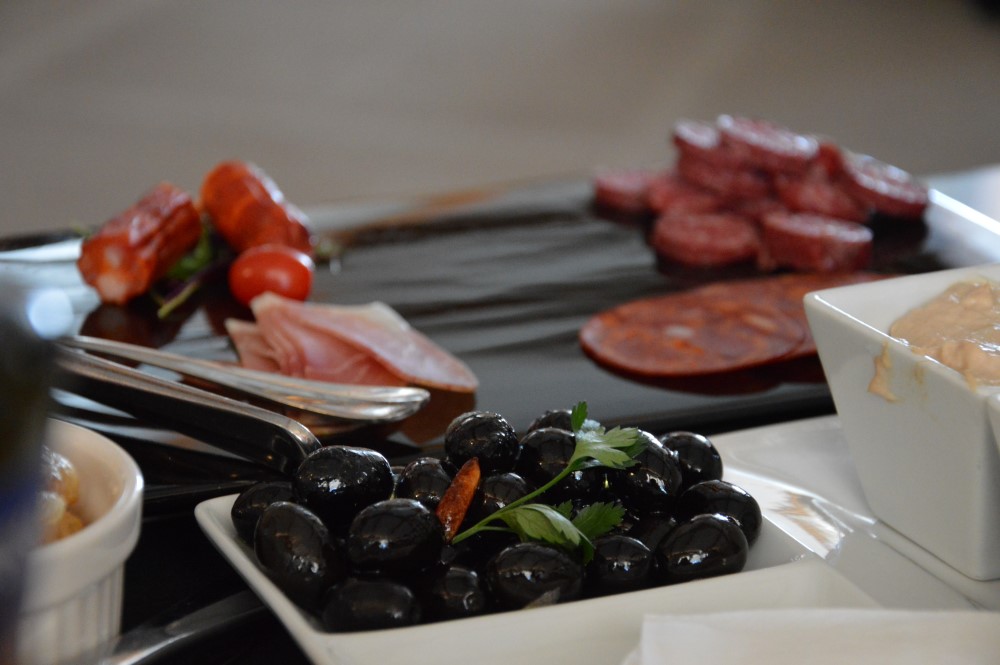
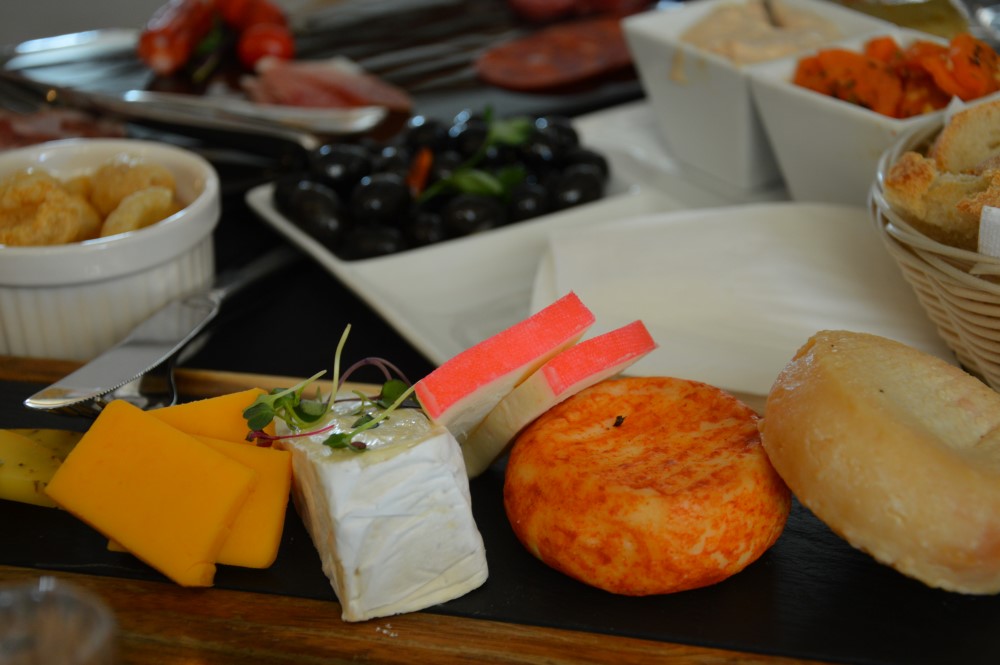
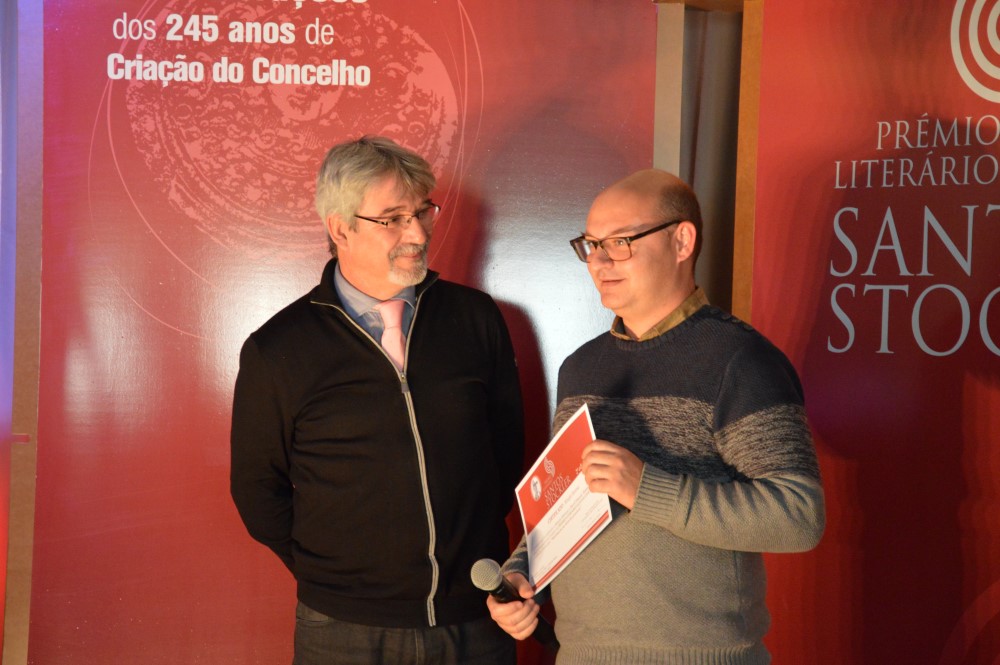
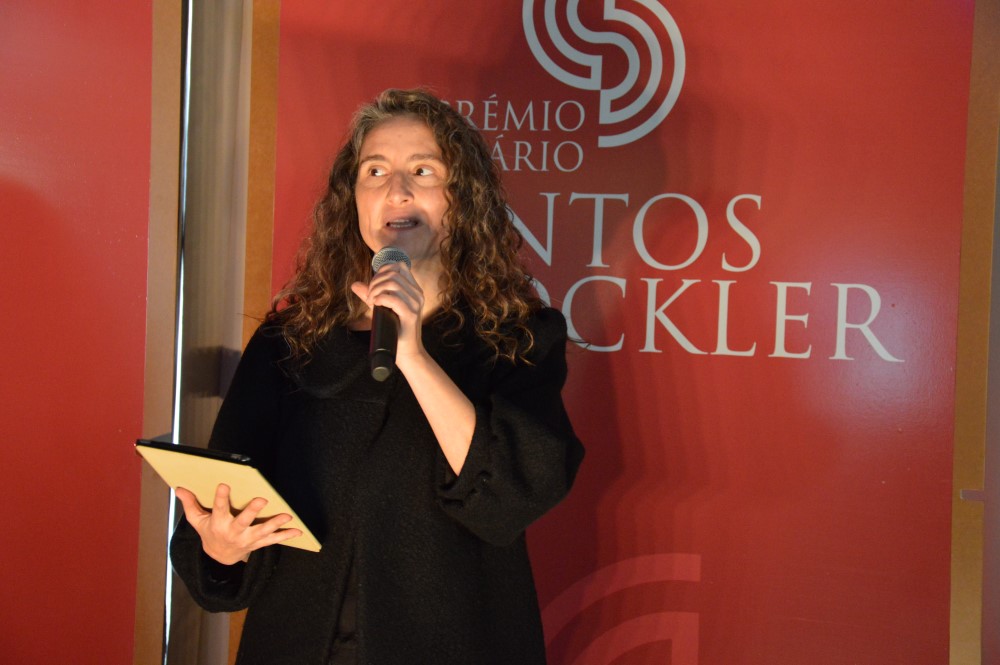
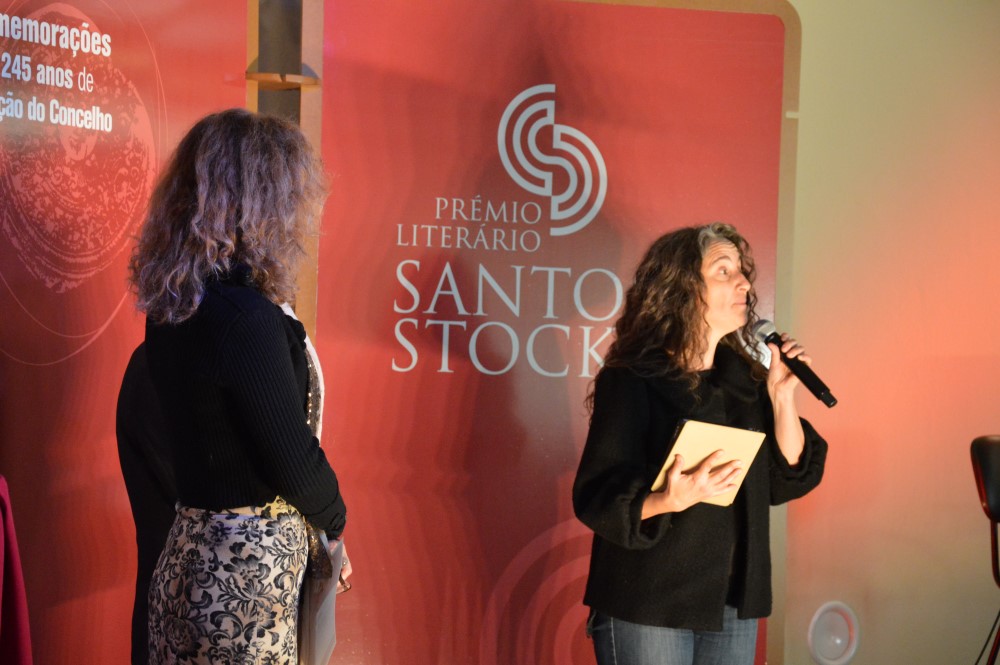

















Comments